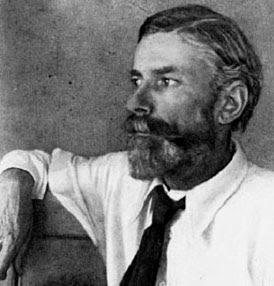Love is concerned with growth and evolution.
It is — though as yet hardly acknowledged in that connection
— a root-factor of ordinary human growth;
for in so far as it is a hunger of the individual,
the satisfaction of that hunger is necessary for individual growth
— necessary (in its various forms) for physical, mental and spiritual nourishment,
for health, mental energy, large affectional capacity, and so forth.
And it is — though this too is not sufficiently acknowledged
— a root-factor of the Evolution process.
For in so far as it represents and gives rise to the union
of two beings in a new form, it plainly represents a step in Evolution,
and plainly suggests that the direction of that step
will somehow depend upon the character and quality of the love concerned.
...
Love — even rude and rampant and outrageous love
...
Love — even rude and rampant and outrageous love
— does more for the moralizing of poor humanity
than a hundred thousand Sunday schools.
It cleans the little human soul from the clustered lies
in which it has nested itself — from the petty conceits
and deceits and cowardices and covert meannesses.
...
Self-consciousness is fatal to love.
...
Self-consciousness is fatal to love.
The self-conscious lover never ‘arrives.’
… And so too the whole modern period of commercial civilization
and Christianity has been fatal to love… They have bred the self-regarding
consciousness in the highest degree; and so
— though they may have had their uses
and their parts to play in the history of mankind,
they have been fatal to the communal spirit in society,
and they have been fatal to the glad expression of the soul in private life.
Self-consciousness is fatal to love,
Self-consciousness is fatal to love,
which is the true expression of the soul.
~ Edward Carpenter
from Marriage in Free Society
with thanks to brainpickings
Carpenter was a poet and writer, he was a close friend of Rabindranath Tagore, and a friend of Walt Whitman. He corresponded with many famous figures, such as Annie Besant, Isadora Duncan, Havelock Ellis, Roger Fry, Mahatma Gandhi, Keir Hardie, J. K. Kinney, Jack London, George Merrill, E. D. Morel, William Morris, Edward R. Pease, John Ruskin, and Olive Schreiner.
Comments from Wikipedia






















0 comments:
Post a Comment